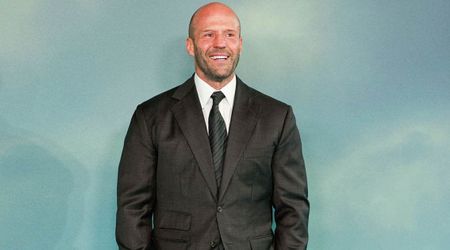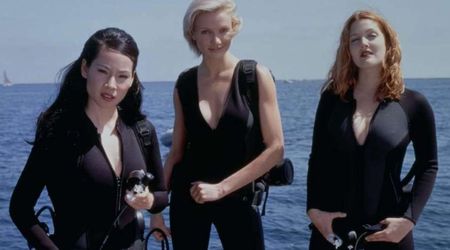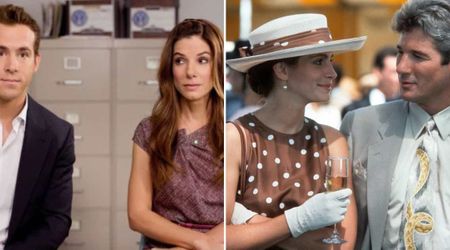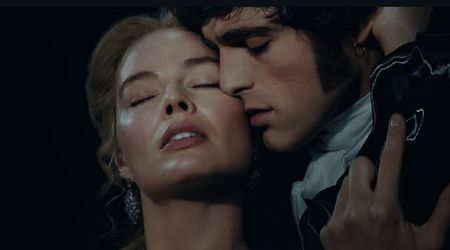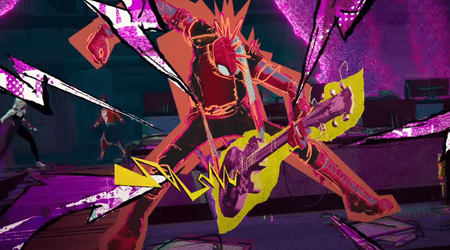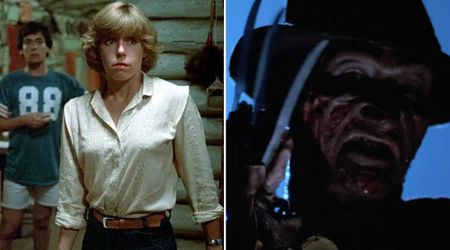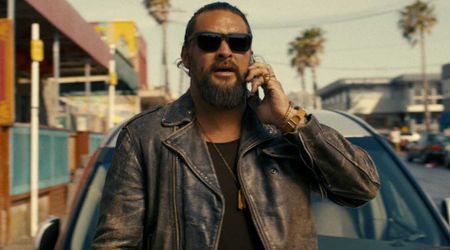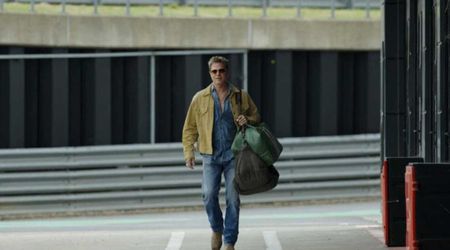'The Painter and The Thief': Barbora was drawn to Karl-Bertil, who stole her painting, the moment she saw him

When Czech painter Barbora Kysilkova walked up to Karl-Bertil Nordland, the man responsible for stealing one of her paintings, at the trial, it was not a spur of the moment decision. In an exclusive interview with MEA WorldWide (MEAWW), she revealed that her idea to interact with the thieves was encouraged by her boyfriend Øystein, a writer who had a feel for stories. "I came with this idea to the courtroom where I knew I'm going to see the thieves. It was a clear thought [that came] when I discovered that there's [going to be] a trial and they will be there. My gorgeous boyfriend, who is an amazing writer, and therefore has a feeling for stories, immediately understood that this is really something I can do something about."
Despite the risk of the encounter going badly, Barbora felt that "as an artist, as a painter", she had a "certain obligation to take the situation and turn it somehow into art". In the beginning, before seeing Karl-Bertil, however, Barbora wanted to capture on canvas the actions of the thieves when they stole her paintings. To this end, she took photos of the room and studied the clues that they had left behind. "So with this kind of thought or concept, I came into the courtroom, but this idea immediately went away. I realized that that's not what I'm about to paint. I actually wanted to see the thief as a person, and to portray him as a person because that's what I saw in him, foremost, not the criminal."
In the film, the first few meetings between Barbora and Karl-Bertil don't go so well when she asks about what happened on the day of the robbery and if he had sold her paintings to someone on the black market. Her probing questions make Karl-Bertil nervous and skittish as he shuts down saying that he was "too high" to remember anything. When we ask Barbora if she was hoping to find out where her paintings were, she explains that her concern about finding the painting became "quite secondary, very fast".
"I realized that he is such an interesting person and I really like him intuitively. I felt that there could be quite an interesting friendship between us. I also did not want to bring up this question about where the paintings could be too often. I think I asked him twice or so, and I did not want to ask again because I was afraid that he could think exactly what you assuming -- that I was only pretending to be his friend in order to find out things, but this really was not the case at all."
While the documentary captures Barbora is some of her worst periods when her relationship is floundering and she is having money problems as a struggling artist, she did not think she had as much to lose as Karl-Bertil when they agreed to be filmed by documentary filmmaker, Benjamin Ree. "Me, myself, I don't think that I would have so much to hide, so I really did not feel that vulnerability, compared to Karl. But you see him enormously exposed. There are very sensitive moments where... I mean, he puts so much at stake."
In a film that reveals the true value of the art Barbora creates in redeeming a man, there are also stark reminders of how money also plays a role in the life of an artist. The stolen paintings are referred to in terms of their monetary value -- 20,000 euros and Barbora herself struggles to pay the rent on her studio so she can keep painting. Art seldom stays in a pure space divorced from commerce.
Yet, Barbora sees that moment of Karl-Bertil accepting her offer to model for her in emotional terms. "Art is always discussed in terms of its monetary value and that's the problem. That's why the art market looks like it looks. The price is what people see first, and that's really sad," she told MEAWW.
"But the deal between me and Karl -- it was not about paying back in material terms for the loss I had suffered. This was more of an emotional payback. I understood it this way from Karl -- it came from the regret he had for stealing my painting. Doing what he did was so big, and he, therefore, felt obliged to pay me back on the emotional level rather than in any monetary way. So it was more about that, the emotions, or the human deal, let's say."
While Barbora had been present for the parts when Benjamin filmed them together, when she saw the finished film, she also saw the portions that only had Karl-Bertil talking about her. "Those scenes were, for me, quite surprising. Especially the scene where he describes that while he knows that I'm seeing him, I better know that he sees me as well. That was for me, a very emotional moment when I realized that of course he's been seeing me and watching me as well. He knows me as well. It's not only me who knows him. Right? Very nice. Very, very powerful."
Karl-Bertil, now "sober and settled", gives her far fewer sleepless nights than when he was an addict. But she giggles, saying that he has an "enormous skill of adding a serious drama to our lives". Even though he was a double subject, of Barbora's paintings and Benjamin's film, he didn't suffer from being scrutinized because of how he would respond to these moments. When the film hit Sundance earlier this year before the pandemic shut the world down, Barbora was "amazed" at the response the film got. "The people at this festival were so warm and openly expressed their emotions and their feelings about the film. I was actually longing for it -- it was why I said yes to the project. I really wanted to show the world what happens when you remove prejudices. The power of forgiveness. I can hope that this art form, which is the film, will give the viewer a different perspective on humanity. How forgiveness really has power and what happens when you remove all the stigmas and you just let the pure human meet another human -- it can really be enriching for everyone," she said.
'The Painter and The Thief' premieres on May 22 on Hulu.

